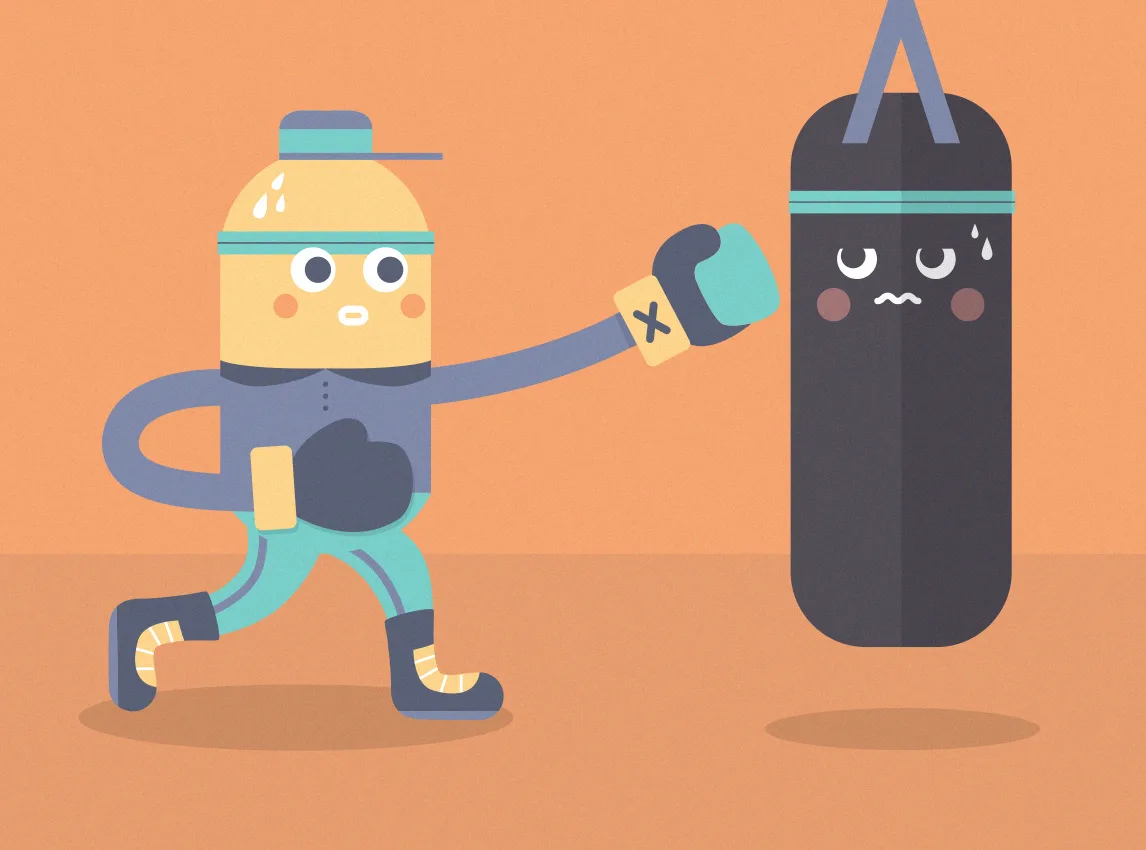The one-two punch that can knock out stress
The term stress as it relates to human health was first described in 1936 by Hans Selye who was one of the pioneers in biological stress research.
He borrowed the term from the field of physics where it is used to described a force that produces a strain on a physical object. Selye proposed that stress was a nonspecific strain on the human body that caused irregularities in the normal bodily functions. Today we know that biological stress has a wide range of negative physiological and psychological health implications. The physiological effects of stress have the potential to manifest in the form of cardiovascular disease or detrimental neurological conditions. While the psychological implications of stress can affect mental health by leading to clinical complications such as anxiety and depression.
Though some areas of society are quick to pass off stress as an unavoidable function of the modern day world we live in, there are some well-established management strategies to mitigate the problem. Two of the most established non-pharmacological stress management techniques are regular exercise and the use of contemplative practices such as meditation. Regular exercise has for a long time been a core recommendation for those experiencing stress, anxiety, and depressive disorders. A 2015 review, suggested that physically fit individuals exhibit fewer pronounced symptoms of physiological activation associated with psychosocial stress and there is evidence physical training has a positive effect on clinical conditions such as anxiety and depression. Thus exercise in its own right has the power to be an effective management technique for stress-related disorders. Another stress management technique that is demonstrating genuine efficacy and also rapidly gaining popularity is meditation. Meditation has been implicated in improved health outcomes in research studies examining stress, anxiety, depression, cognition and even sleep to name but a few. The effects of mindfulness meditation on stress and anxiety are perhaps most well established.
Regular exercise has for a long time been a core recommendation for those experiencing stress, anxiety, and depressive disorders. A 2015 review, suggested that physically fit individuals exhibit fewer pronounced symptoms of physiological activation associated with psychosocial stress and there is evidence physical training has a positive effect on clinical conditions such as anxiety and depression. Thus exercise in its own right has the power to be an effective management technique for stress-related disorders. Another stress management technique that is demonstrating genuine efficacy and also rapidly gaining popularity is meditation. Meditation has been implicated in improved health outcomes in research studies examining stress, anxiety, depression, cognition and even sleep to name but a few. The effects of mindfulness meditation on stress and anxiety are perhaps most well established. Despite the demonstrated efficacy of both regular exercise and meditation in isolation, few studies have taken the plunge to examine whether a cumulative effect could exist. Only one recent study has combined the two techniques and shown extremely positive effects on endpoints associated with depression. Clinical depression is a potential downstream complication of chronic stress and anxiety. The study, conducted by researchers at Rutgers University, took a group of 55 clinically depressed, as well as healthy men and women, through an eight-week program. Over eight weeks they completed 30 minutes of focused-attention meditation followed by 30 minutes of aerobic exercise twice a week. At the end of the eight-week period, there was nearly a 40 percent reduction in depressive symptoms in depressed individuals. Interestingly, individuals without a clinical diagnosis of depression also reported significant reductions in depressive symptoms. While the study was unable to tease out whether exercise and meditation together were superior to either strategy in isolation, the magnitude of benefit does represent early evidence that combining exercise and meditation may provide a synergistic benefit. In other words, a jog and a meditation might be just what we all need.
Despite the demonstrated efficacy of both regular exercise and meditation in isolation, few studies have taken the plunge to examine whether a cumulative effect could exist. Only one recent study has combined the two techniques and shown extremely positive effects on endpoints associated with depression. Clinical depression is a potential downstream complication of chronic stress and anxiety. The study, conducted by researchers at Rutgers University, took a group of 55 clinically depressed, as well as healthy men and women, through an eight-week program. Over eight weeks they completed 30 minutes of focused-attention meditation followed by 30 minutes of aerobic exercise twice a week. At the end of the eight-week period, there was nearly a 40 percent reduction in depressive symptoms in depressed individuals. Interestingly, individuals without a clinical diagnosis of depression also reported significant reductions in depressive symptoms. While the study was unable to tease out whether exercise and meditation together were superior to either strategy in isolation, the magnitude of benefit does represent early evidence that combining exercise and meditation may provide a synergistic benefit. In other words, a jog and a meditation might be just what we all need.



Be kind to your mind
- Access the full library of 500+ meditations on everything from stress, to resilience, to compassion
- Put your mind to bed with sleep sounds, music, and wind-down exercises
- Make mindfulness a part of your daily routine with tension-releasing workouts, relaxing yoga, Focus music playlists, and more
Meditation and mindfulness for any mind, any mood, any goal

Stay in the loop
Be the first to get updates on our latest content, special offers, and new features.
By signing up, you’re agreeing to receive marketing emails from Headspace. You can unsubscribe at any time. For more details, check out our Privacy Policy.
- © 2025 Headspace Inc.
- Terms & conditions
- Privacy policy
- Consumer Health Data
- Your privacy choices
- CA Privacy Notice
